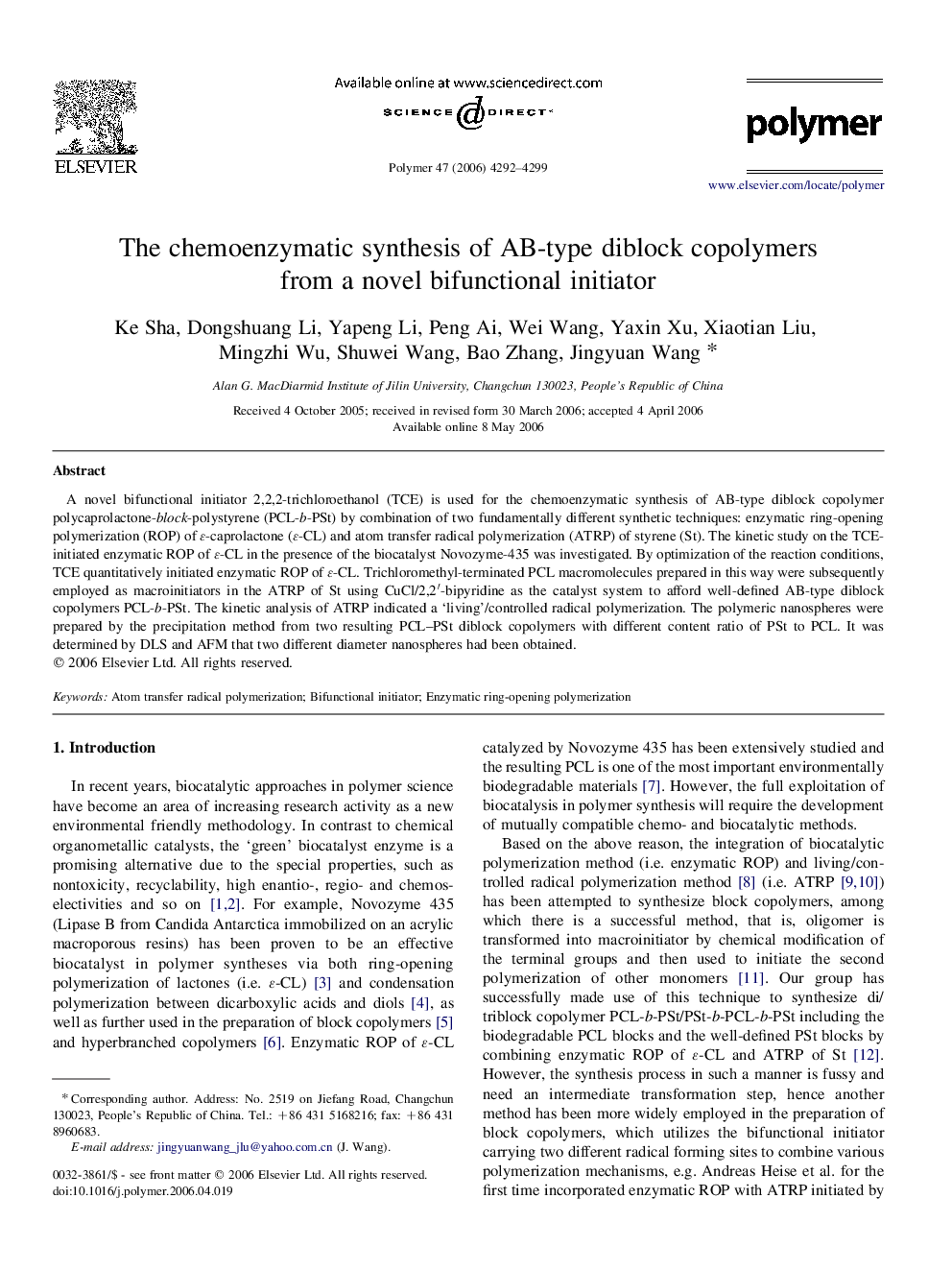| Article ID | Journal | Published Year | Pages | File Type |
|---|---|---|---|---|
| 5189739 | Polymer | 2006 | 8 Pages |
Abstract
A novel bifunctional initiator 2,2,2-trichloroethanol (TCE) is used for the chemoenzymatic synthesis of AB-type diblock copolymer polycaprolactone-block-polystyrene (PCL-b-PSt) by combination of two fundamentally different synthetic techniques: enzymatic ring-opening polymerization (ROP) of ε-caprolactone (ε-CL) and atom transfer radical polymerization (ATRP) of styrene (St). The kinetic study on the TCE-initiated enzymatic ROP of ε-CL in the presence of the biocatalyst Novozyme-435 was investigated. By optimization of the reaction conditions, TCE quantitatively initiated enzymatic ROP of ε-CL. Trichloromethyl-terminated PCL macromolecules prepared in this way were subsequently employed as macroinitiators in the ATRP of St using CuCl/2,2â²-bipyridine as the catalyst system to afford well-defined AB-type diblock copolymers PCL-b-PSt. The kinetic analysis of ATRP indicated a 'living'/controlled radical polymerization. The polymeric nanospheres were prepared by the precipitation method from two resulting PCL-PSt diblock copolymers with different content ratio of PSt to PCL. It was determined by DLS and AFM that two different diameter nanospheres had been obtained.
Keywords
Related Topics
Physical Sciences and Engineering
Chemistry
Organic Chemistry
Authors
Ke Sha, Dongshuang Li, Yapeng Li, Peng Ai, Wei Wang, Yaxin Xu, Xiaotian Liu, Mingzhi Wu, Shuwei Wang, Bao Zhang, Jingyuan Wang,
